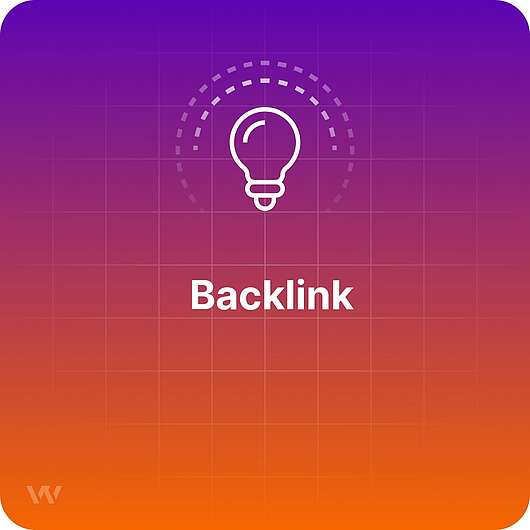- Why Us?
- Features
White Label
For SaaS Platforms & Agencies
Provide our complete analytics suite to your clients, directly within your own interface and with your/their own branding. Discover Analytics-as-a-Service and White Label Analytics. Great benefit, minimal effort.
- Pricing
- White Label
- Success Stories
- ResourcesGetting Started
Backlink
What is a backlink?

Backlinks represent the links from third-party domains that point to your domain and pages. A "backlink" is any link to your site placed on an external website. It could be easily defined as the opposite of a outbound link, as it is created when another website links to your pages.
A backlink is often called inbound link or external backlink as well. The number of backlinks or referring domains contribute to the web site's rank and relevance. The higher the number of backlinks, the better! A website can have multiple backlinks from the same referrer site, as long as the linked content is relevant and useful for the reader. However, ideally, backlinks from multiple referring sites are the best for website ranking, as they work as a vote of trust for the content on the linked page.
The more outside sources trust you; the more loved you are by the ranking algorithms!
Why is backlinking important?
As mentioned above, backlinks represent an incoming link to a page. Besides the traffic that comes to you from that specific source, it also works as a vote of confidence for your business or content.
A backlinking strategy helps you
- Improve organic ranking
- Index the site fast
- Get a high number of visitors through referral traffic
Being trusted by multiple sites makes search engines rank you higher for relevant content. However, to get the right backlinks, here are a few types of backlinks to keep in mind:
- Link juice - refers to all the website links referring to your pages. The link itself passes on power, trustworthiness and page rank. Therefore, it improves your DA (domain authority) and site ranking in search engines.
- Do-follow links vs. no-follow links. To get Link Juice from your referrer links, you need to be linked with a do-follow tag (which is actually the default option). As a typical website visitor, there is no difference between do-follow and no-follow links. However, for search engines, do-follow means that you link a site that you vouch for, while a no-follow tag, will not contribute anything. No-follow is mainly used by website owners when they link to a site that they do not trust 100%, or is an unreliable site.
- Linking Root Domains: While the number of backlinks is counted by the times you are referred; linking root domains refer to the number of backlinks to your site from a single/unique domain. Basically, if a website links to you multiple times, you will have one linked root domain and multiple backlinks.
- Internal vs. External Links: Internal links refer to a link from one page to another on your website. It is also known as internal linking; External links refer to backlinks listed on other websites.
- Anchor Text: The phrase or word used for the hyperlink is highly vital to ranking well for particular keywords.
- Low-Quality Links: represent the links to your site referred by spam sites.

